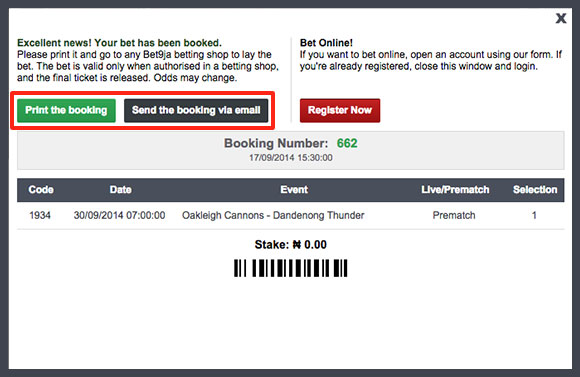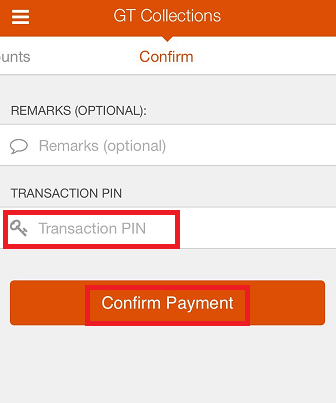The CFTC is Shaking Up Sports Betting’s Legal Future
This post was originally released in Law360 on June 25, 2025, and is republished here with authorization.
What is gaming? In current months, this has been the question at the intersection of the investing and wagering markets. On Sept. 6, 2024, in the KalshiEX LLC v. Commodity Futures Trading Commission decision, the U.S. District Court for the District of Columbia weighed in, ruling that predicting the winner of a political election does not fall within the scope of “gaming,” as the term is specified in the Commodity Exchange Act.
This decision opened the floodgates. Companies began pressing the envelope practically immediately. Commodities markets, which were once limited to standard instruments to hedge financial risk, discovered themselves complete of opportunities for the general public to wager on the result of almost anything.
But is there a line that commodities contracts can not cross? If the general public can utilize these contracts to wager on the winner of a political contest, what is stopping business from offering comparable agreements associating with the outcome of sporting events?
This article will discuss the pertinent regulative landscape, recent actions to offer sporting occasion contracts, state and federal regulative reactions, and – most notably – whether the sports wagering market is in the middle of a fundamental modification.
What Are Event Contracts, and How Are They Regulated?
Financial derivatives are investment items frequently noted on exchanges regulated by the Commodity Futures Trading Commission.
An event agreement is a type of monetary derivative, understood as a swap, for which the benefit is based upon the event, nonoccurence or the level of the event of a specified future event or contingency related to a possible financial, economic or commercial effect.
While traditionally utilized as a tool to hedge versus financial and financial dangers, there has been a recent trend toward utilizing event agreements as an opportunity to allow investors to pursue earnings on their more speculative forecasts.
Listing a brand-new occasion contract on a CFTC-regulated exchange is remarkably easy. Certain designated contract markets can self-certify new offerings, attesting that their items abide by the terms of the Commodity Exchange Act and CFTC guidelines.
The CFTC, nevertheless, maintains the right to action in and carry out a 90-day review to ensure compliance with the commission’s regulations. For instance, CFTC Regulation 40.11 forbids event contracts that reference or relate to specific topics, consisting of terrorism, assassination and – most pertinent here – video gaming.
Cracking Open the Door – the Kalshi Decision
Last year, the CFTC challenged an effort by one business, Kalshi, to note event agreements to anticipate the aggregate result of U.S. congressional races. The CFTC’s primary argument was that these agreements breached the CFTC guideline forbiding video gaming agreements.
The District of Columbia disagreed, discovering the agreements were allowable under the Commodity Exchange Act and CFTC policies.
The CFTC appealed and further requested that Kalshi’s ability to list the occasion contracts be remained pending the appeal. On Oct. 2, 2024, the U.S. Court of Appeals for the District of Columbia Circuit decreased to release a stay, enabling Kalshi’s to go live.
Thereafter, Kalshi not just relisted the agreements at problem, but likewise expanded its political election market offerings. To date, the American public has tossed more than $1 billion into Kalshi’s political markets, betting on subjects consisting of President Donald Trump’s cabinet elections, the words Federal Reserve Chair Jerome Powell will say during his next interview, and even whether Trump will include himself to Mount Rushmore.
But Kalshi has actually not stopped at simply politics. The company continues to broaden into the entertainment area, permitting users to predict everyday top artists on Spotify, Rotten Tomatoes scores for upcoming films and TV programs, and the next star to play James Bond. For months, though, the question remained: Would Kalshi offer sporting event agreements?
Kalshi Takes the Plunge, Offers Sporting Event Contracts
In late December 2024, Kalshi dove in headfirst, self-certifying and listing event contracts that permitted the public to forecast the winner of the Super Bowl and College Football Playoff National Championship. However, just days before Trump’s inauguration, the CFTC pushed back, showing they meant to review the legality of sporting event agreements.
To date, Kalshi and others continue to offer a variety of sports-related offerings on their sites, consisting of markets for all significant American expert sports, college sports and European soccer. Interest has actually boomed. During the 2025 March Madness competition, the American public put over $500 million into Kalshi’s college basketball markets alone.
Reversing Course at the CFTC – From Foe to Friend
Pressure from the CFTC has actually dissipated since the Trump administration took office. Republican members of the CFTC have actually been relatively more responsive to the growth of occasion agreements into less conventional topic and have shown a more lenient method to the guideline of sports-related occasion agreements.
The acting CFTC chair, Caroline Pham, has openly criticized the commission’s “anti-innovation policies of the past several years.” The presumptive next CFTC chair, Brian Quintenz has actually echoed this belief.
On May 5, the CFTC dropped its appeal of the District of Columbia’s choice. In action, Kalshi’s CEO specified, “Kalshi’s approach has formally and definitively protected the future of forecast markets in America.”
Constitutional Questions, Opposition From State Regulators and Tribal Interests
It hasn’t been all smooth cruising for Kalshi, though. Despite waning CFTC opposition, a new opponent has actually emerged: state gaming commissions. In recent months, gaming commissions in at least 6 states – Nevada, New Jersey, Maryland, Ohio, Montana and Illinois – have provided cease-and-desist orders, arguing that offering sporting event contracts constitutes the operation of unlicensed sports gambling in offense of state law.
Kalshi has actually not pulled back. In late March in the U.S. District Court for the District of Nevada, the company took legal action against the state’s video gaming regulators in KalshiEX LLC v. Hendric and state gaming regulators in New Jersey in the U.S. District Court for the District of New Jersey in KalshiEX LLC v. Flaherty.
Counting on the Constitution’s supremacy provision, Kalshi argued that the actions of state regulators are preempted by the Commodity Exchange Act, in which Congress gave the CFTC special jurisdiction to manage monetary derivatives traded on authorized exchanges.
Both the District of Nevada and the District of New Jersey concurred with Kalshi, permitting them to continue operating their sporting occasion markets in the states.
On April 21, Kalshi took legal action against Maryland regulators in the U.S. District Court for the District of Maryland, in KalshiEX LLC v. Martin, asserting the exact same preemption arguments in an effort to continue their run of lawsuits success.

Tribal interests have actually likewise been linked, with tribal leaders telling the CFTC that widespread legalization of sporting occasion agreements threatens tribal gaming interests.
At his nomination hearing on June 10, however, CFTC chair nominee Brian Quintenz said” [n] othing in the [Commodity Exchange Act] that I’m aware of restricts or impacts the chance of people to provide those products, those markets, and those services.”
Is Federal Sports Investing the Future?
If Kalshi’s string of success continues, we might be headed toward an essential shift in the sports betting wagering market. Since the U.S. Supreme Court’s landmark 2018 choice in Murphy v. NCAA, the choice whether to legalize sports wagering, and in what types, has been left to the states. While the majority of states have legalized sports betting wagering, the practice remains outlawed or greatly restricted in a variety of states.
If the CFTC continues their hands-off method and allows Kalshi and other business to continue to offer sporting event agreements on federal exchanges, the existing state-by-state, patchwork system might be in jeopardy. If Kalshi’s constitutional preemption argument prevails, all people – even those living in states where sports wagering remains illegal under state law – would be enabled to invest in sporting occasion contracts.
Not only would this considerably decrease the power of state legislatures and state gaming regulators, but it would also cut into the market shares of existing rivals. Before the increase of Kalshi, online sports books and brick-and-mortar gambling establishments were the only feasible legal outlets for sports wagering.
If investment in sporting occasion agreements is available to individuals throughout the nation, despite state lines, the earnings of business and tribes that run these outlets could take an enormous hit.
Practice Tips
– Legal specialists currently associated with the sports wagering industry, as well as practitioners venturing into this novel area between sports “wagering” and sports “investing” should consider the following ideas:
– Familiarize yourself with appropriate monetary derivatives laws and regulations, specifically arrangements of the Commodity Exchange Act and CFTC policies.
– Understand stakeholder roles and interests, particularly state interests in regulating sports wagering, including associated tax profits, sports book and tribal interests in preserving existing market share and the CFTC’s interest in managing federal financial derivatives markets. – Appreciate the constitutional doctrines – e.g., preemption – and their prospective effect on the future of sports wagering and investing.
– Follow continuous advancements. Litigation of these conflicts continues throughout the U.S., and, provided the big stakeholders involved, is unlikely to decrease. Congressional action and changes in CFTC policy likewise have the potential to shape the future of the industry.
Somewhat poetically, the only certainty worldwide of sports betting the last couple of years has been unpredictability. The market stays in unclear waters, and with the Republican-led federal government just recently installed, there is a new captain in charge.





